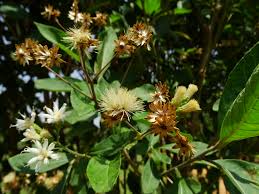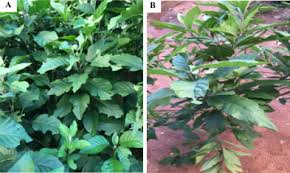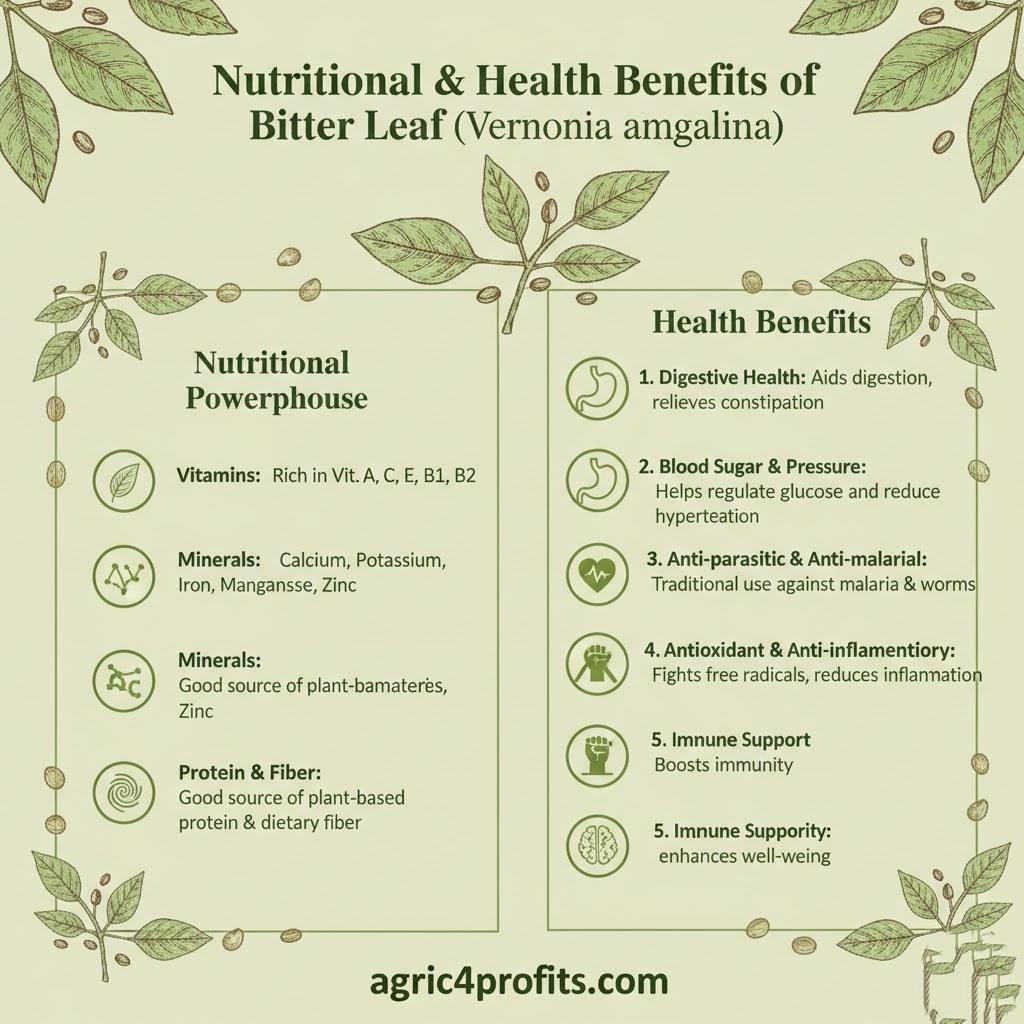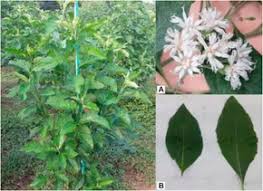Independent leaf, scientifically known as Vernonia amygdalina, is a remarkable plant that has gained attention for its numerous health benefits and versatility in various applications. Commonly found in tropical regions, especially in Africa, this plant is often used in traditional medicine and culinary practices.
Its leaves are rich in vitamins, minerals, and antioxidants, making them a valuable addition to a healthy diet. The popularity of independent leaf has surged in recent years as more people seek natural remedies and sustainable food sources.
One of the most significant benefits of independent leaf is its impressive nutritional profile. The leaves are packed with essential nutrients, including vitamins A, C, and E, as well as important minerals like calcium, iron, and potassium.
These nutrients play a vital role in maintaining overall health and well-being. For instance, vitamin A is crucial for vision and immune function, while vitamin C supports skin health and boosts the immune system.
The high mineral content helps in bone health and overall metabolic processes. Incorporating independent leaf into daily meals can provide a substantial nutrient boost, contributing to better health outcomes.
Another noteworthy advantage of independent leaf is its medicinal properties. Traditionally, this plant has been used to treat various ailments, including gastrointestinal issues, fever, and infections. Studies have shown that independent leaf possesses anti-inflammatory, antimicrobial, and antioxidant properties, making it effective in combating oxidative stress and supporting the body’s natural defenses.
Its use in herbal remedies has been linked to improved digestion, enhanced liver function, and better blood sugar regulation. By incorporating independent leaf into dietary practices or using it as a herbal supplement, individuals can harness these health benefits.
Additionally, independent leaf is an excellent source of dietary fiber. Fiber is essential for digestive health as it promotes regular bowel movements and prevents constipation. A diet high in fiber can also help manage weight by providing a sense of fullness and reducing overall calorie intake.
The fiber content in independent leaf can assist in maintaining a healthy gut microbiome, which is crucial for overall health and immunity. As more people recognize the importance of dietary fiber, independent leaf serves as a natural and effective way to increase fiber intake.
Moreover, the environmental benefits of cultivating independent leaf cannot be overlooked. As a hardy plant, it requires minimal resources to grow and can thrive in various soil types and climatic conditions. This resilience makes it an ideal candidate for sustainable agriculture practices.
By promoting the cultivation of independent leaf, farmers can enhance biodiversity, improve soil health, and provide a crop that is both nutritious and economically viable. Its ability to grow in challenging conditions means it can contribute to food security in areas where other crops may struggle, making it an important plant for future agricultural initiatives.
The independent leaf is a remarkable plant with a wealth of benefits ranging from its rich nutritional content and medicinal properties to its environmental sustainability. As individuals seek healthier lifestyles and sustainable food sources, incorporating independent leaf into diets and agricultural practices presents a promising opportunity.
Whether used in traditional dishes or as a herbal remedy, independent leaf has the potential to enhance health, support environmental efforts, and contribute to the well-being of communities worldwide.
Nutritional and Potential Medicinal Value of Independent Leaf
1. Vitamins and Minerals: It contains vitamins A, C, and K, along with minerals like calcium, potassium, and magnesium to support overall health.
2. Dietary Fiber: The leaf is a good source of dietary fiber, which aids in digestion and helps maintain healthy blood sugar levels.
3. Antimicrobial Properties: Independent leaf has been shown to possess antimicrobial properties, making it effective against certain bacteria and fungi.
4. Traditional Uses: In traditional medicine, it is used to treat various ailments, including respiratory issues, digestive disorders, and skin infections.
Antioxidant Properties of Independent Leaf
1. Combatting Free Radicals: The antioxidants in independent leaf help neutralize free radicals in the body, reducing the risk of chronic diseases.
2. Supporting Immune Function: By reducing oxidative stress, independent leaf supports a healthy immune system, making the body more resilient against infections.
3. Skin Health: The antioxidants also benefit skin health by preventing signs of aging and improving skin tone and texture.
Anti-inflammatory Benefits of Independent Leaf
1. Reducing Inflammation: Independent leaf contains compounds that can help reduce inflammation in the body, which is beneficial for arthritis patients.
2. Pain Relief: Its anti-inflammatory effects may also provide relief from pain, particularly in conditions associated with muscle strains.
3. Supporting Digestive Health: By reducing inflammation in the gut, independent leaf may alleviate symptoms of digestive disorders and promote comfort.
Read Also: 16 Medicinal Health Benefits Of Scleromitrion diffusum (Spreading Diamond Flower)
Immune System Support

1. Antimicrobial Properties: The leaf contains natural compounds that exhibit antimicrobial effects, helping the body fight off infections caused by pathogens.
2. Nutrient-Rich Profile: Rich in vitamins A, C, and E, independent leaf provides essential nutrients that play a vital role in white blood cell production.
3. Antioxidant Activity: The antioxidants present in independent leaf help reduce oxidative stress, allowing the immune system to function more effectively.
Digestive Health Advantages
1. Dietary Fiber Content: The leaf is a good source of dietary fiber, which aids in regular bowel movements and prevents constipation.
2. Relief from Digestive Disorders: Traditional medicine often uses independent leaf to relieve symptoms of digestive disorders, such as bloating and indigestion.
3. Anti-inflammatory Effects: By reducing inflammation in the gut, independent leaf can alleviate discomfort associated with inflammatory bowel conditions.
Skin Health Improvement
1. Antioxidant Protection: The antioxidants in independent leaf help protect the skin from damage caused by free radicals, reducing wrinkles.
2. Anti-inflammatory Benefits: Its anti-inflammatory properties can help soothe skin irritation and redness, making it beneficial for acne or eczema.
3. Nutritional Benefits: The vitamins and minerals in independent leaf nourish the skin, promoting a healthy complexion and improved texture.
Cardiovascular Benefits of Independent Leaf
<img class=”wp-image-404323″ style=”width: 668px; height: auto;” src=”https://agric4profits.com/wp-content/uploads/2024/10/17297736927517789083415708247178.jpg” alt=”Benefits Of Independent Leaf” />
1. Cholesterol Management: Some studies suggest that independent leaf may help lower levels of bad cholesterol while raising good cholesterol.
2. Blood Pressure Regulation: The potassium content in independent leaf can help regulate blood pressure by promoting healthy blood vessel function.
3. Anti-inflammatory Properties: By reducing inflammation in the cardiovascular system, independent leaf may lower the risk of heart disease.
Read Also: 12 Medicinal Health Benefits Of Renealmia alpinia (Pink cone ginger)
Weight Management Assistance

1. Low-Calorie Content: With its low-calorie profile, independent leaf can be added to meals without significantly increasing caloric intake.
2. Dietary Fiber: The high fiber content in independent leaf promotes satiety, helping you feel full for longer periods.
3. Nutrient Density: Independent leaf ensures you get essential nutrients without excess calories, aiding those aiming to maintain health while losing weight.
Potential Cancer-fighting Properties
1. Antioxidant Compounds: The antioxidants in independent leaf combat oxidative stress and may reduce the risk of cancer development by neutralizing free radicals.
2. Anti-inflammatory Effects: Independent leaf’s anti-inflammatory properties may help lower the risk of inflammation-related cancers.
3. Phytochemicals: Independent leaf contains phytochemicals that have shown potential in inhibiting the growth of cancer cells in preliminary studies.
Scientific Evidence and Case Studies on Independent Leaf
1. Glycemic Control: Research indicates that the flavonoids in independent leaf significantly lower blood sugar levels in diabetic subjects.
2. Liver Protection: Clinical studies have demonstrated that extracts from the leaf help detoxify the liver and prevent damage from toxins.
3. Antimicrobial Efficacy: Laboratory tests show that leaf extracts are highly effective against Staphylococcus aureus and other common bacteria.
4. Anti-malaria Trials: Studies in tropical regions have confirmed that the leaf contains compounds that inhibit the growth of malaria parasites.
5. Lipid Profile Study: Evidence suggests that regular consumption reduces total cholesterol and triglycerides in patients with hyperlipidemia.
Summary of Independent Leaf

| Category | Key Information |
| Scientific Name | Vernonia amygdalina. |
| Main Nutrients | Rich in Vitamins A, C, E, Calcium, Iron, and Potassium. |
| Medicinal Uses | Treats malaria, digestive issues, infections, and inflammation. |
| Digestive Benefit | High fiber content prevents constipation and supports gut bacteria. |
| Heart Health | Helps regulate blood pressure and manage healthy cholesterol levels. |
| Sustainable Growth | Resilient plant that thrives in poor soil with minimal resources. |
| Weight Control | Low-calorie and high-fiber profile promotes satiety and weight loss. |
Frequently Asked Questions
1. Why is it called the independent leaf?
The name often refers to its ability to grow independently in harsh conditions and its self-sustaining nature in various tropical soils.
2. Is independent leaf the same as bitter leaf?
Yes, Vernonia amygdalina is widely known as bitter leaf in many parts of West Africa due to its distinctively bitter taste.
3. How can I remove the bitterness from the leaves?
The bitterness is usually reduced by washing the leaves thoroughly with water and salt or by boiling them several times.
4. Can I drink the juice from squeezed independent leaves?
Yes, the raw juice is often consumed as a potent herbal tonic to treat stomach upsets, malaria, and high blood sugar.
5. Is independent leaf safe for pregnant women?
While it is nutritious, pregnant women should consult a healthcare provider before using it as a high-dose herbal remedy.
6. How does it help with skin infections?
The leaves have antimicrobial and anti-inflammatory properties that can be applied topically to soothe rashes and kill bacteria.
7. Can it help with diabetes management?
Yes, the leaf is traditionally used to improve insulin sensitivity and lower glucose levels in the bloodstream naturally.
8. Does it have any side effects?
Excessive consumption may cause mild stomach upset or diarrhea in sensitive individuals due to its high fiber and bitter compounds.
Do you have any questions, suggestions, or contributions? If so, please feel free to use the comment box below to share your thoughts. We also encourage you to kindly share this information with others who might benefit from it. Since we can’t reach everyone at once, we truly appreciate your help in spreading the word. Thank you very much for your support and for sharing!
Disclaimer: This article is for educational and informational purposes only. The health benefits described are based on scientific research and traditional knowledge. They ayre not a substitute for professional medical advice, diagnosis, or treatment. Always consult a healthcare professional before using any herb or natural remedy for medical purposes.
Read Also: Complete Composting Guide for Beginners

